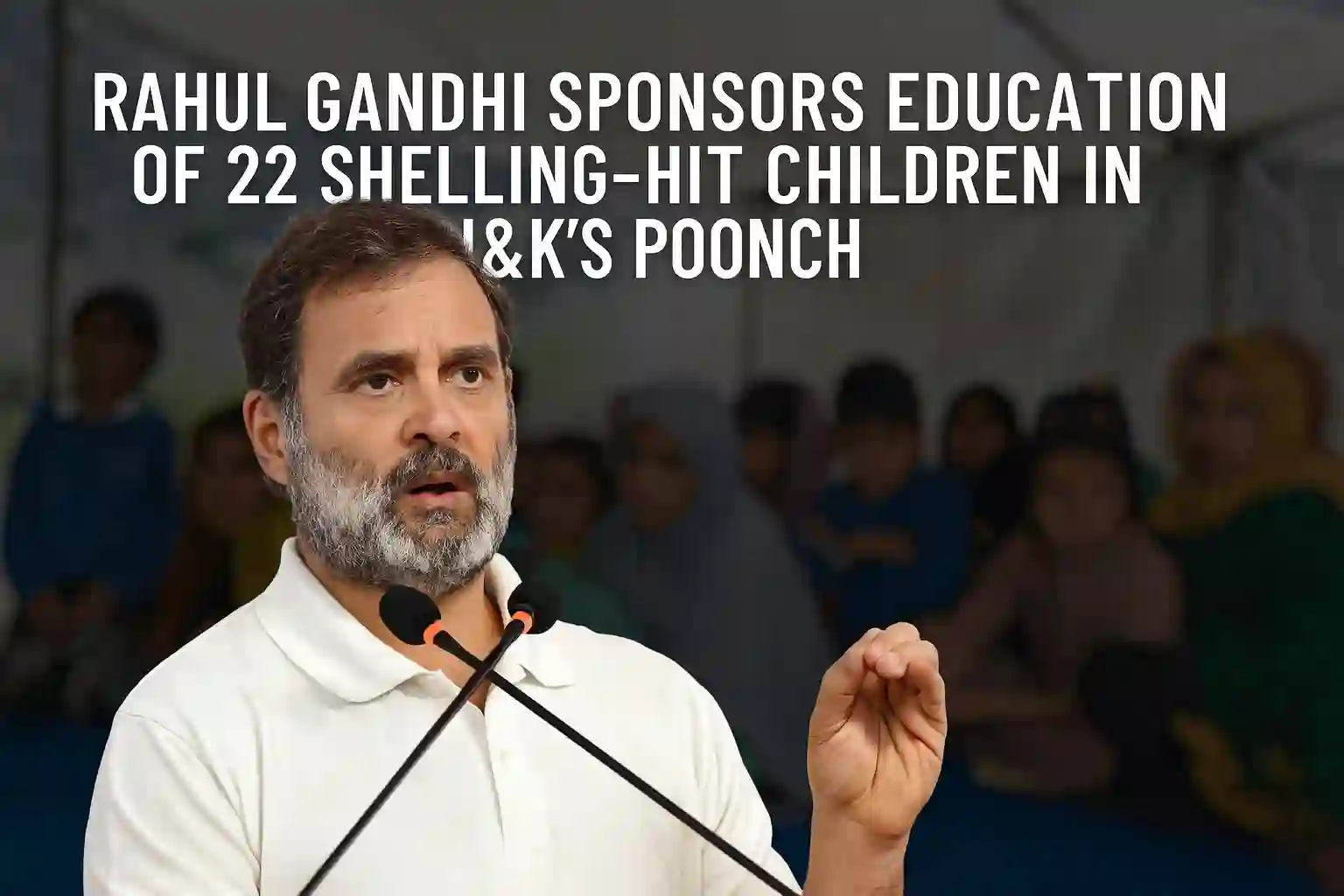Congress leader Rahul Gandhi has come forward to sponsor the education of 22 children affected by cross-border shelling in the Poonch district of Jammu and Kashmir. These children, mostly from the border village of Balakote, have seen not just displacement and trauma, but also long disruptions in their schooling due to violence along the Line of Control. With this move, Rahul Gandhi has taken a personal initiative to ensure that these children don’t lose out on basic education and future opportunities.
I felt the need to write about this not because it’s a political gesture, but because it touches on a bigger issue—how conflict disrupts children’s lives in border areas. Education often becomes the first casualty in such regions. Many of us sitting in safe cities can’t even imagine what it feels like to grow up hearing gunfire and seeing your school closed down for weeks. So when someone steps in to help such kids continue their studies, it goes beyond charity—it’s a message of hope. Highlighting these efforts also reminds us that there are many children who still need similar support but continue to remain invisible to the system.
Who Are the Beneficiaries?
The 22 children belong to families that live in villages near the LoC in the Balakote sector. These areas frequently face Pakistani shelling, causing damage to homes, schools, and civilian life. The students belong to low-income families who can barely make ends meet, especially during times when cross-border tensions flare up.
Some of the children have even lost parents or family members in shelling incidents, and others have had to shift houses multiple times. With Rahul Gandhi’s support, these children will now have access to proper schooling, uniforms, books, and hostel facilities where needed.
How Did This Support Come About?
During his recent visit to Jammu and Kashmir, Rahul Gandhi met several families affected by border violence. He spoke to children in Poonch and heard their personal stories. Moved by their situation, he immediately decided to bear the educational expenses of the affected children.
He also directed local Congress workers and Youth Congress members to identify the most vulnerable kids and make sure their educational needs are met in a structured manner. The children are expected to be enrolled in private or government schools, depending on individual needs.
Local Response and Support
The initiative has received appreciation from local residents and civil society groups. In a place like Poonch, where educational support often gets lost between border politics and bureaucratic delays, even a small step like this is a big relief for the families.
Teachers in the region have said that this move could inspire more people—especially those with influence or resources—to step forward and support students in such conflict-hit zones.
What This Means for Border Education
Rahul Gandhi’s gesture sheds light on a bigger issue: the education gap in conflict zones. Border villages often lack proper infrastructure like:
- Safe school buildings
- Qualified teachers willing to stay
- Regular classes without fear of shelling
- Counselling or emotional support for traumatised kids
Unless these gaps are addressed systematically, children from such areas will always lag behind. Political leaders, NGOs, and local governments need to prioritise education as a right, even in disturbed regions. Sponsorships like these are a good start, but the system needs a long-term solution.











